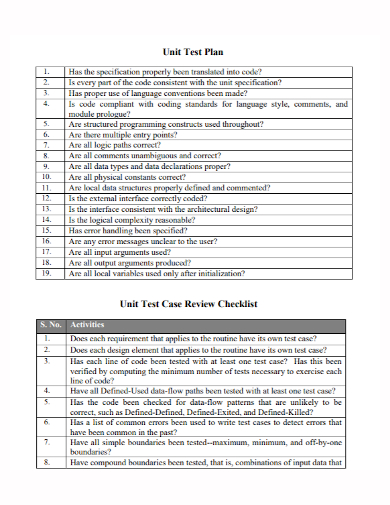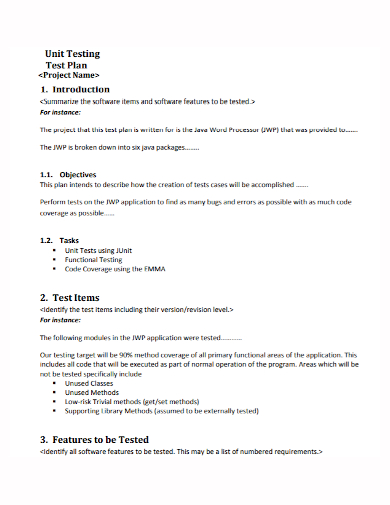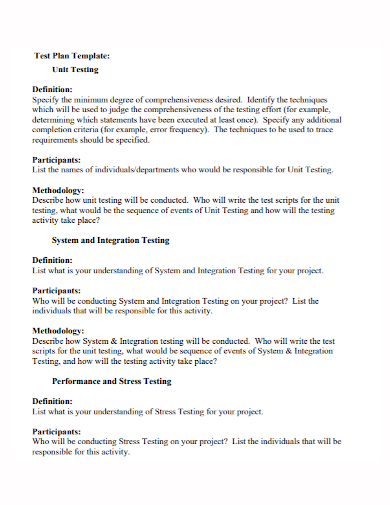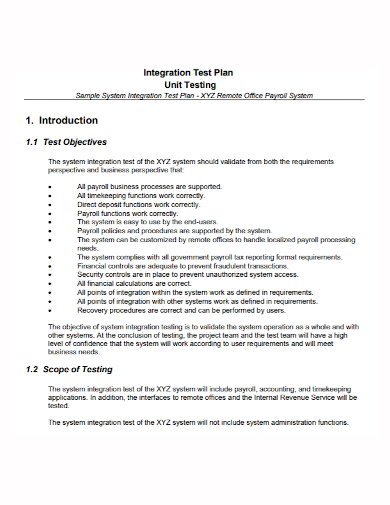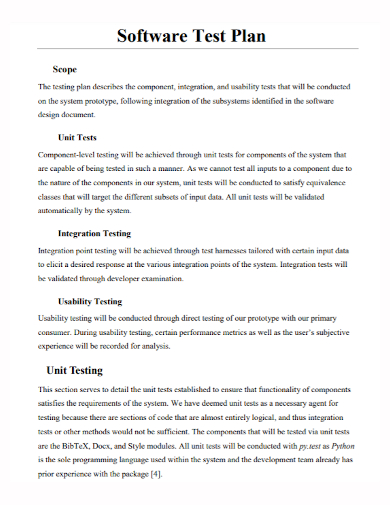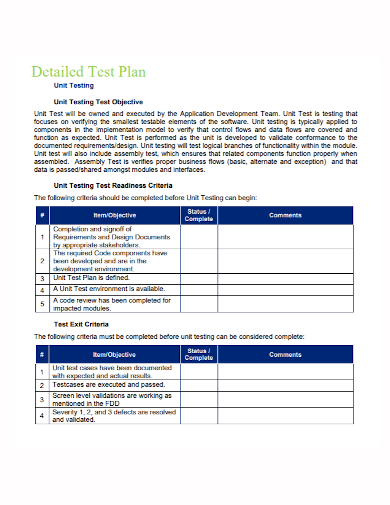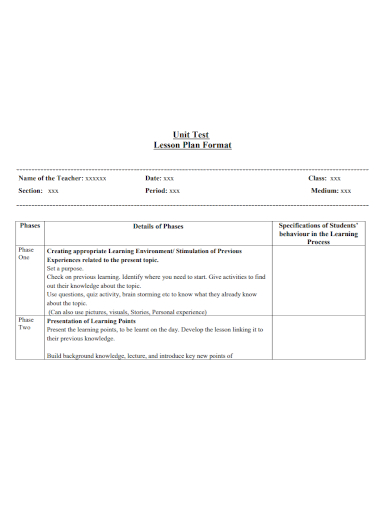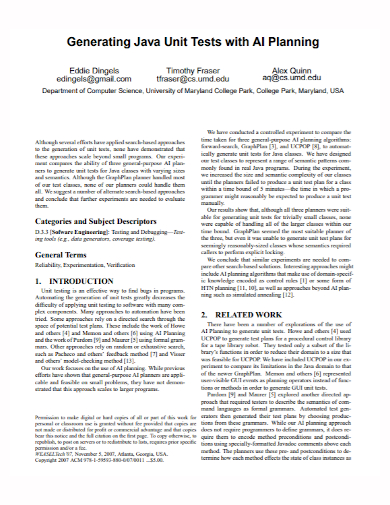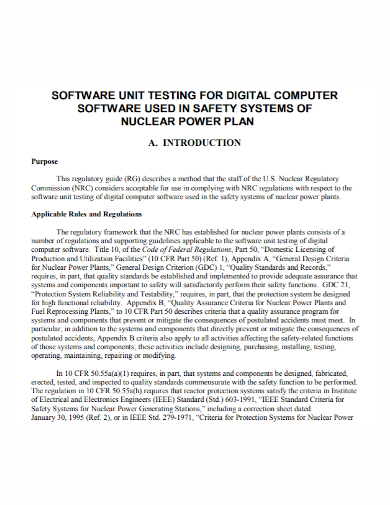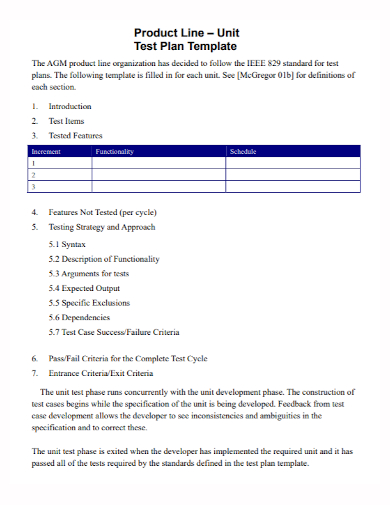A test plan is an essential component of any software development project. It explains how you’ll ensure that your product or feature does what it’s supposed to do and doesn’t fail when your users need it most. But what should your test strategy entail? How far do you have to go to ensure that your product holds up and that your customers get what they want? This guide will teach you everything you need to know about defining and documenting your test plan, as well as selecting the best test strategies for your users, development team, and stakeholders.
10+ Unit Test Plan Samples
UNIT TESTING is a type of software testing that examines individual software units or components. The goal is to ensure that each unit of software code works as intended. Unit testing is carried out by developers during the development (coding) phase of an application. Unit tests are used to isolate a section of code and ensure that it is correct. An individual function, method, procedure, module, or object can be considered a unit.
1. Unit Test Plan Template
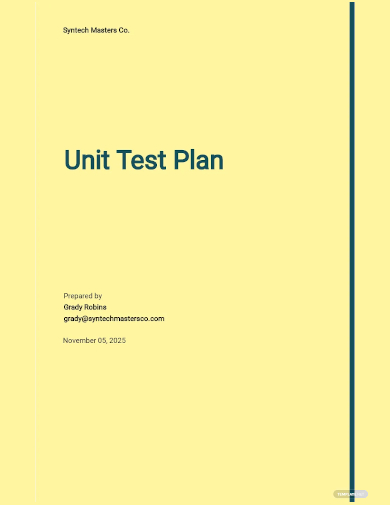
2. Unit Test Plan Review Checklist
3. Unit Project Test Plan
4. System Unit Test Plan
5. Unit Integration Test Plan
6. Software Unit Test Plan
7. Unit Detailed Test Plan
8. Unit Test Lesson Plan
9. Java Unit Test Plan
10. Unit Test Safety Plan
11. Product Line Unit Test Plan
What Should Be Included?
- Coverage – As previously stated, creating a test plan is all about finding the right balance. You want to be thorough without being overbearing, so be specific about what will (and will not) be included in the test plan. Following a brief introduction that highlights your test plan’s objectives, high-level scope, and schedule, you must define what you will and will not test. This is your test scope, and if you don’t take the time to be specific and answer both what you’ll test and why you’ll test it, it can quickly spiral out of control. The test criteria and scope must be agreed upon by all parties. As a best practice, describe your tests and why they were (or weren’t) completed using industry-standard or at least agreed-upon standards and terminology. There will be no ambiguity or doubt about what you tested this way.
- Methods – The next step is to explain your test strategy in detail. As much as possible, go into detail. It’s also a good idea to make a list of your assumptions and risks at this point. To put it another way, what do you expect to happen and what are some of the risks you’ll face during the test? Finally, you must outline the resource requirements and schedule for your test project. Who is in charge of testing, and what resources (both technical and human) do they require? When and for how long will the testing take place?
- Responsibilities – What are the test deliverables that you require? This includes the data you’ll collect, how you’ll compile it into reports, and the issues and tasks you’ll send back to the development team. Each test deliverable should be assigned to a specific person on your team in a section on roles and responsibilities to ensure that nothing is overlooked. It’s important to keep in mind that this is just a basic outline of what should go into a test plan. You’ll build a library of test plan templates over time that will serve as guides for new product releases, updates, and features.
FAQs
How do you define the test objectives and pass/fail criteria?
You’ll need to know when your test is “done” as you define each different test you’re going to run. This means defining the pass and fail criteria for each specific test, as well as some of the other things we mentioned earlier, like exit and suspension criteria. To do so, you’ll need to figure out which system metrics you’re monitoring and what success looks like for each one.
How to plan for the test environment?
The outcome of your test plan will be determined by the feature you’re testing as well as the environment in which you’re testing it. You must decide what hardware, software, operating system, and device combinations you will test as part of the scope.
If you want to see more samples and formats, check out some unit testing plan samples and templates provided in the article for your reference.
Related Posts
FREE 7+ Fashion Business Plan Samples in PDF
FREE 10+ Sprint Planning Samples In MS Word | Google Docs | PDF
FREE 10+ Wedding Planning Samples in MS Word | Apple Pages | Powerpoint | PDF
FREE 9+ Monthly Study Planner Samples in PSD | Illustrator | InDesign | PDF
FREE 9+ Sample Curriculum Planning Templates in PDF | MS Word
FREE 10+ Teacher Development Plan Samples in MS Word | Google Docs | Apple Pages | PDF
FREE 10+ Basketball Practice Plan Samples in PDF
FREE 12+ School Business Plan Samples in PDF | MS Word | Apple Pages | Google Docs
FREE 7+ Client Strategic Plan Samples in PDF | MS Word
FREE 11+ Trucking Business Plan Templates in PDF | MS Word | Google Docs | Pages
FREE 7+ Small Hotel Business Plan Samples PDF | MS Word | Apple Pages | Google Docs
FREE 14+ Bakery Business Plans in MS Word | PDF | Google Docs | Pages
FREE 4+ Yearly Lesson Plan Samples in PDF
FREE 50+ Strategic Planning Samples in Google Docs | Pages | PDF | MS Word
FREE 10+ Construction Project Plan Samples in MS Word | Google Docs | Apple Pages | PDF

